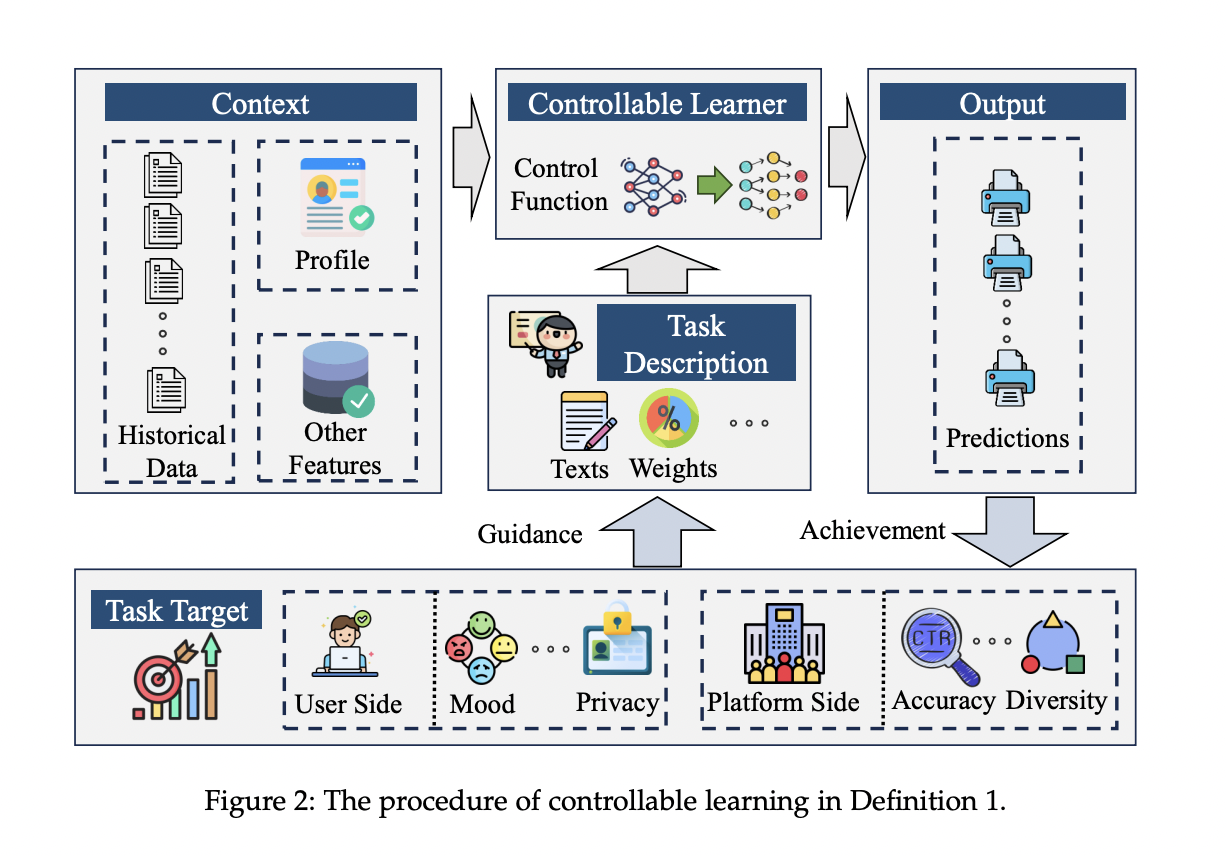
Controllable Learning (CL) has emerged as a key component of reliable machine learning, which focuses on ensuring that learning models meet predefined goals and adapt to changing requirements without retraining. Let’s take a closer look at CL methods and applications, with a particular focus on an implementation of CL within an Information Retrieval (IR) system presented by researchers at Renmin University of China.
The definition and importance of controllable learning
Controllable learning is formally defined as the ability of a learning system to adapt to different task requirements without the need for retraining. This adaptability ensures that the learning model meets the specific needs and goals of the user, improving the reliability and effectiveness of the system. The importance of CL lies in its ability to accommodate the dynamic and complex nature of information needs in IR applications, where context and requirements change frequently.
Controllable learning classification
CL taxonomies are categorized based on who controls the learning process (user or platform), what aspects are controllable (e.g., search goals, user behavior, adaptation to the environment), how control is implemented (e.g., rule-based methods, Pareto optimization, hypernetworks), and where power is applied (pre-processing, during processing, post-processing).
User-centric control
User-centric control allows users to actively shape their recommendation experience. This includes changing their user profile, interactions, and settings, which directly affect the output of the recommendation system. Techniques such as UCRS and LACE allow users to manage their own profiles and interactions, ensuring recommendations match their changing preferences.
Control via the platform
Platform-based control includes algorithmic tuning and policy-based constraints imposed by the platform. This approach aims to enhance the recommendation process by balancing multiple goals such as accuracy, diversity, and user satisfaction. Technologies such as ComiRec and CMR leverage hyper-networks to dynamically generate parameters that adapt to different user preferences and environmental changes, ensuring a customized recommendation experience.
Implementation Techniques in Controllable Learning
A variety of techniques are employed to implement control in learning systems. These include:
- Rule-based techniques: These methods apply predefined rules to refine and enhance the output of AI models to ensure aspects such as security, fairness, interpretability, etc. This technique ensures that the system effectively meets certain performance metrics such as diversity and fairness of recommendations.
- Pareto Optimization: This approach balances multiple competing objectives by finding a set of optimal trade-offs, providing a dynamic system that allows real-time adjustments and responds to changing user preferences and task demands.
- Hyper Network: Hypernetworks generate the parameters of other networks, providing a flexible way to dynamically manage and adapt model parameters, improving model adaptability and performance across a variety of tasks and domains.
Applications in Information Retrieval
Controllable learning in IR is especially valuable due to the complex and evolving nature of users’ information needs. The adaptability of CL techniques allows learning models to dynamically adapt to different task descriptions and deliver personalized and relevant search results without extensive retraining. This adaptability improves user satisfaction and system performance in IR applications.
Conclusion
The survey of controllable learning highlights its important role in ensuring reliable and adaptive machine learning systems. Providing a comprehensive overview of CL methods, applications, and challenges, this survey is an excellent resource for researchers, practitioners, and policymakers interested in the future of reliable machine learning and information retrieval.
Please check paper. All credit for this research goes to the researchers of this project. Also, don’t forget to follow us. twitter And our 46k+ ML Subreddit, 26k+ AI Newsletters, Telegram Channel, and LinkedIn GroupsUp.
Please fill out if you are interested in promotional partnership (content/advertising/newsletter). This shape.
Aswin AK is a Consulting Intern at MarkTechPost. He is pursuing a dual degree from Indian Institute of Technology Kharagpur. He is passionate about Data Science and Machine Learning and has a strong academic background and practical experience in solving real-world cross-domain problems.
